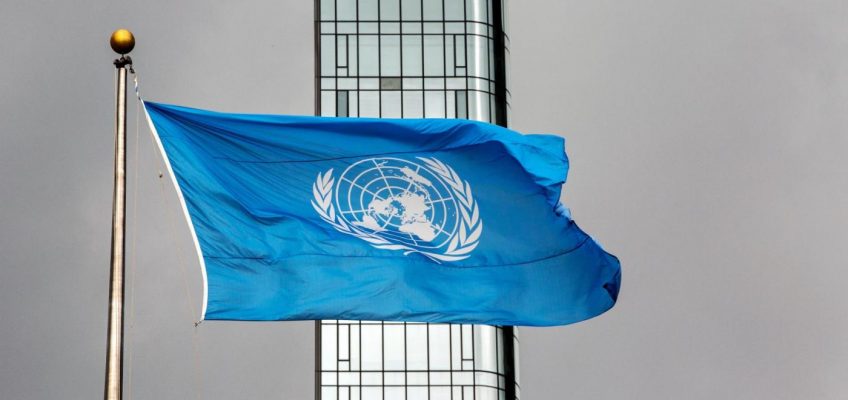By JAMEY KEATEN and FARNOUSH AMIRI, Associated Press
UNITED NATIONS (AP) — United Nations officials have circulated proposals for a vast consolidation of U.N. operations and other sweeping reforms to root out inefficiencies, overlaps and cost overruns as the world body faces a critical funding crunch, according to an internal memo obtained by The Associated Press.
The proposals, which are in the early stages of discussion and are far from certain to be adopted, would amount to one of the biggest overhauls of the U.N., which has been upended by funding cuts from its biggest donor, the United States, under President Donald Trump’s administration.
The document, labeled “strictly confidential,” falls under a reform initiative known as UN80 that Secretary-General Antonio Guterres launched in March.
Related Articles
Netanyahu’s campaign against Iran’s nuclear program is muted with Trump in power
Nigerian teenager sets world painting record with canvas that’s bigger than a soccer field
How long was the longest conclave? Facts about the secret voting to elect a pope
Drones strike ship carrying aid to Gaza, organizers say, in latest confrontation over assistance
A US-led effort to end the war in Ukraine looks favorable to Russia, but mixed signals emerge
It comes as the United Nations is set to celebrate its 80th anniversary this summer, with its ability to work on resolving conflicts, help feed and house the poor, destitute and displaced, and fight disease, along with many other of its lofty humanitarian ambitions, increasingly in doubt.
“The memo is the preliminary result of an exercise to generate ideas and thoughts from senior officials on how to achieve the secretary-general’s vision,” U.N. spokesman Stephane Dujarric said.
He noted that it was just one way the U.N. is working on changes and that “this exercise is designed to ensure we are responsible stewards of the monies from hardworking taxpayers around the world who underwrite everything we do through member state contributions.”
The memo notes “significant overlaps, inefficiencies, and increased costs in the UN system” and a “fragmented development system” — an allusion to the work to help poorer or conflict-battered countries build and rebuild.
The document, in an apparent signal to aid cutbacks by the U.S. and other Western countries, noted that “geopolitical shifts and substantial reductions in foreign aid budgets are challenging the legitimacy and effectiveness” of the United Nations.
The U.N. proposals underscore the impact of Trump’s decision to pull the U.S. back from its position as the world’s single largest aid donor, as his administration slashes foreign assistance. But even before the Republican president took office, many donor nations had reduced humanitarian spending, and U.N. agencies struggled to reach funding goals.
Among the ideas being discussed in New York is a proposal to form a single humanitarian entity, such as by creating a “streamlined” organization that pulls together the U.N.’s aid coordinator, refugee agency and migration agency and “leveraging” the expertise of the U.N. World Food Program.
The AP reported this week that several U.N. agencies that provide aid to children, refugees and other vulnerable people around the world would be slashing jobs or cutting costs in other ways, ahead of any mandates from headquarters. Among those organizations is the World Food Program, which is expected to cut up to 30% of its staff.
The head of the U.N. High Commissioner for Refugees said it would downsize its headquarters and regional offices to reduce costs by 30% and cut senior-level positions by 50%. Other agencies, including UNICEF and OCHA, also plan to make cuts.
Other ideas being discussed in New York are options for a merger of multiple organizations — possibly including the U.N. bodies for peacekeeping; drugs and crime; development assistance; and the office of the special adviser on Africa — into one peace and security entity.
Other options could include moving U.N. peace and security operations “closer to the field,” with a more regional, decentralized management, and a “comprehensive restructuring” of the political and peacekeeping operations.
More broadly, the proposed reforms would affect the U.N.’s approach to new technologies like artificial intelligence and alter the internal culture, down to the way meetings would be structured, operations funded, budgets set and new organizations created in the future.
The existence of the internal memo was first reported by Reuters.
Keaten reported from Geneva.


Leave a Reply